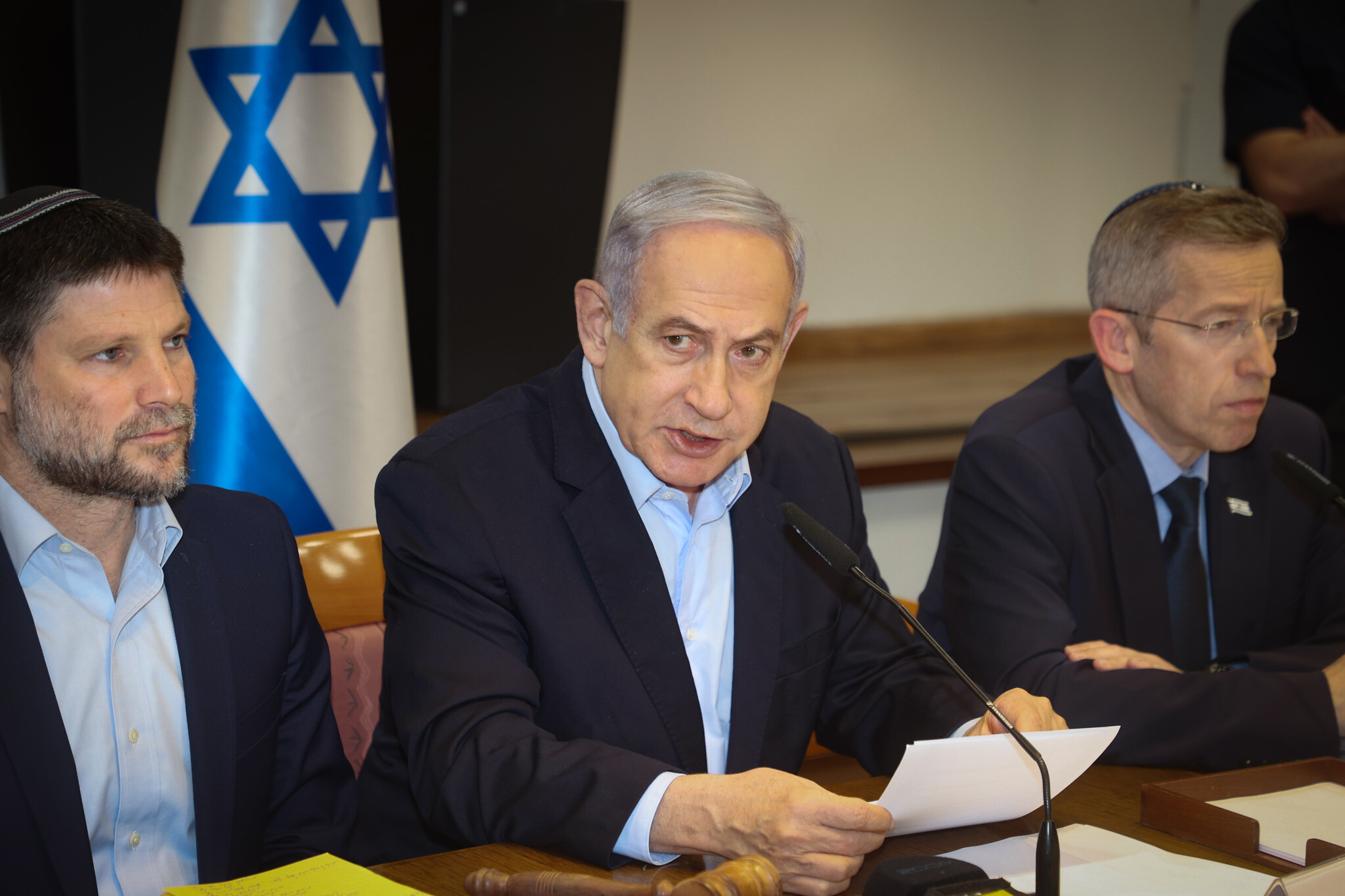Respondents prefer former prime minister Naftali Bennett (by 11%) or National Unity leader Benny Gantz (by 6%) to Netanyahu as PM
By TOI STAFF
6 July 2024

Protesters led by the mothers of Hamas-held hostages demonstrate in support of a hostage deal in Tel Aviv on July 5, 2024. The banner reads: A mother never gives up. (Tomer Neuberg/Flash90)
Two-thirds of the Israeli public believe returning the hostages is more important than continuing the war in Gaza, according to a poll published by Channel 12 News on Friday.
Asked what is most important at this time, 67 percent of respondents said returning the hostages, compared to 26% who said continuing the war in Gaza, and 7% who said they didn’t know.
Israel sent a delegation of negotiators headed by Mossad chief David Barnea to Doha on Friday after Hamas submitted its latest response to the hostage deal proposal. Negotiations are expected to continue in the coming week.
Jerusalem’s marathon ‘sleep-in’ protestKeep Watching
Responding to the question of why they think the war hasn’t ended yet, 54% said it was because of Prime Minister Benjamin Netanyahu’s political considerations, 34% said it was due to substantive and operational considerations and 12% weren’t sure.
Sixty-eight percent of respondents said Israel is far from the “total victory” pledged by Netanyahu, compared to 23% who said Israel is close and 9% who were unsure.
Recently, multiple officials, including Israel Air Force commander Tomer Bar and IDF Chief of Staff Herzi Halevi, have said that Hamas’s military wing is close to being defeated in Gaza.

Protesters led by the mothers of Hamas-held hostages demonstrate in support of a hostage deal in Tel Aviv on July 5, 2024. The banner reads: A mother never gives up. (Tomer Neuberg/Flash90)
Two-thirds of the Israeli public believe returning the hostages is more important than continuing the war in Gaza, according to a poll published by Channel 12 News on Friday.
Asked what is most important at this time, 67 percent of respondents said returning the hostages, compared to 26% who said continuing the war in Gaza, and 7% who said they didn’t know.
Israel sent a delegation of negotiators headed by Mossad chief David Barnea to Doha on Friday after Hamas submitted its latest response to the hostage deal proposal. Negotiations are expected to continue in the coming week.
Jerusalem’s marathon ‘sleep-in’ protestKeep Watching
Responding to the question of why they think the war hasn’t ended yet, 54% said it was because of Prime Minister Benjamin Netanyahu’s political considerations, 34% said it was due to substantive and operational considerations and 12% weren’t sure.
Sixty-eight percent of respondents said Israel is far from the “total victory” pledged by Netanyahu, compared to 23% who said Israel is close and 9% who were unsure.
Recently, multiple officials, including Israel Air Force commander Tomer Bar and IDF Chief of Staff Herzi Halevi, have said that Hamas’s military wing is close to being defeated in Gaza.

IDF Chief of Staff Herzi Halevi speaks at a graduation ceremony for pilots, June 27, 2024. (Israel Defense Forces)
Netanyahu has repeatedly insisted that the war will continue until all Israel’s goals are achieved, specifying that Hamas must be destroyed, all hostages returned, and the threat of a future major security threat to Israel from Gaza neutered.
Meanwhile, Netanyahu’s approval ratings on his handling of the war were significantly low. While their approval ratings were not high either, Defense Minister Yoav Gallant’s and Halevi’s scores were far better than the prime minister’s.
More than two-thirds (68%) of respondents said Netanyahu’s performance was not good, as opposed to only 28% who said it was. Four percent said they didn’t know.
Meanwhile, almost half (49%) said Gallant’s performance was not good, as opposed to 43% who said it was. The remaining eight percent said they didn’t know.

Prime Minister Benjamin Netanyahu leads a cabinet meeting at the Kirya military headquarters in Tel Aviv, January 7, 2024. (Yariv Katz/Pool)
Halevi was the only prominent figure in the poll to have more people say his handling of the war was good (46%) than not good (44%); the other 10% said they didn’t know.
With the country’s leaders’ approval ratings low and constant protests calling for new elections, respondents were asked when elections should be held. Forty-three percent said as soon as possible, 29% said when the war is over, 23% said when the current coalition’s term expires in October 2026, and 5% said they were unsure.
Asked who is most suited to serve as premier, Netanyahu or opposition chair Yair Lapid, 31% of respondents said Netanyahu, compared to 30% who said Lapid. A further 35% said neither and 4% were unsure.
When the choice was between National Unity leader Benny Gantz and Netanyahu, 35% said Gantz and 29% said Netanyahu. An additional 31% said neither and 5% were unsure.
When the choice was between former prime minister Naftali Bennett and Netanyahu, 37% said Bennett, 26% said Netanyahu, 33% said neither of them and 4% said they were unsure.

Former prime minister Naftali Bennett arrives at the scene of a terror attack in Ra’anana on January 15, 2024. (Itai Ron/Flash90)
When the choice was between Bennett and Gantz, 27% said Bennett, 26% said Gantz, 42% said neither of them and 5% said they were unsure.
Finally, as United States President Joe Biden tries to convince the American people that he is fit to run for the presidency after his disastrous debate with Republican candidate Donald Trump last week, 48% of respondents said they preferred Trump to win, 27% said Biden and 25% said they were unsure.
The network did not say how many people took part in the poll, which was conducted by the Midgam research firm along with online polling firm iPanel. They did not provide a margin of error.
No comments:
Post a Comment